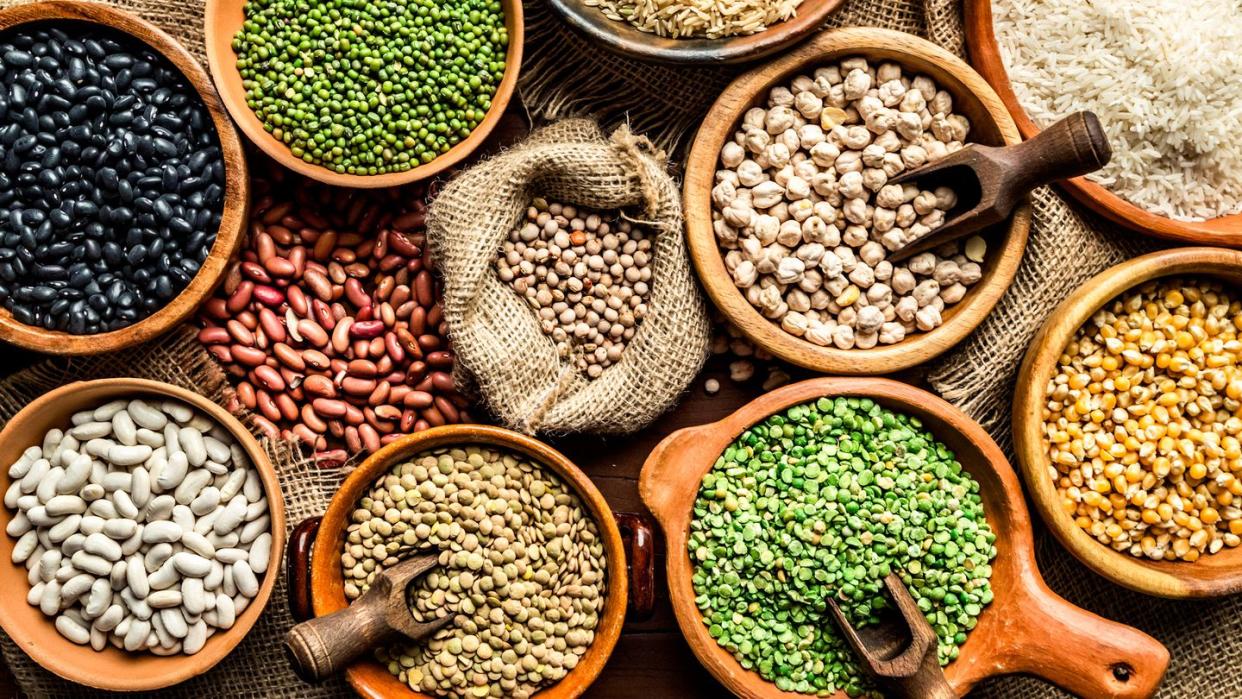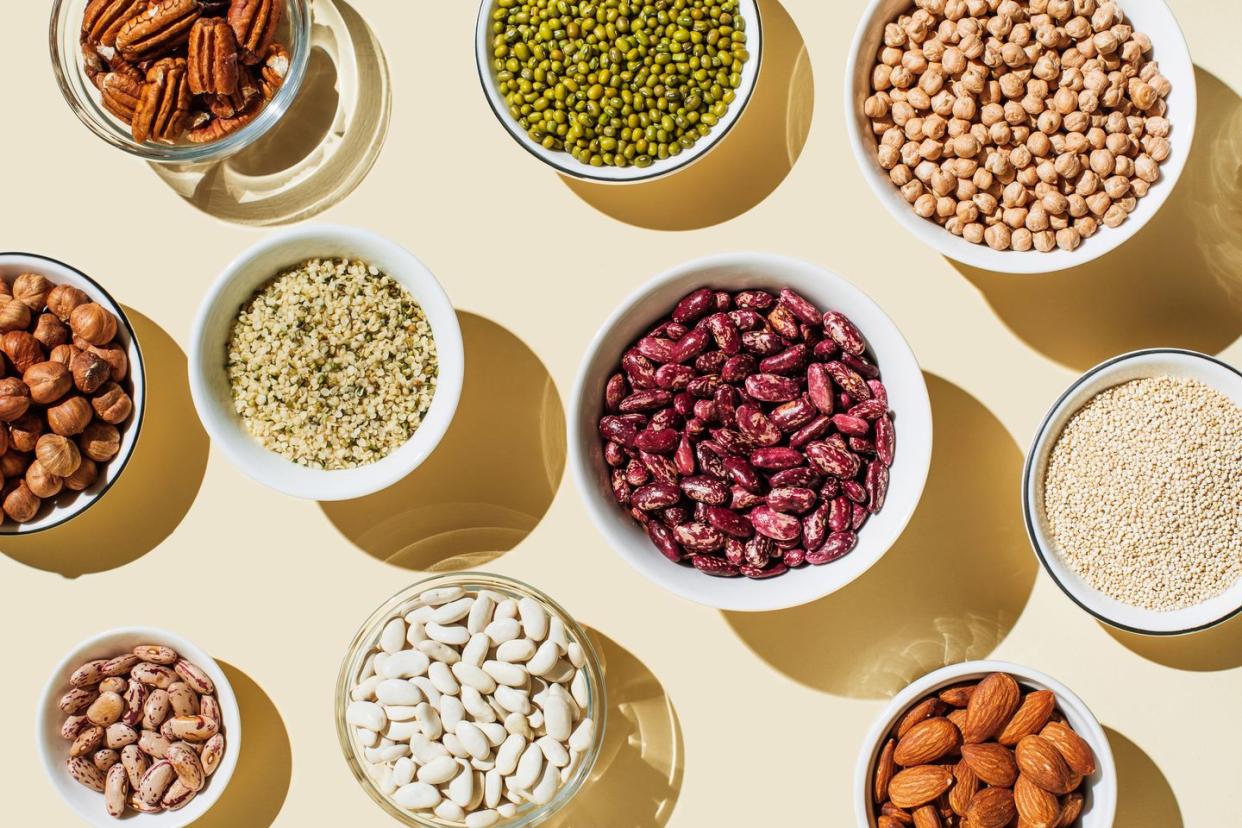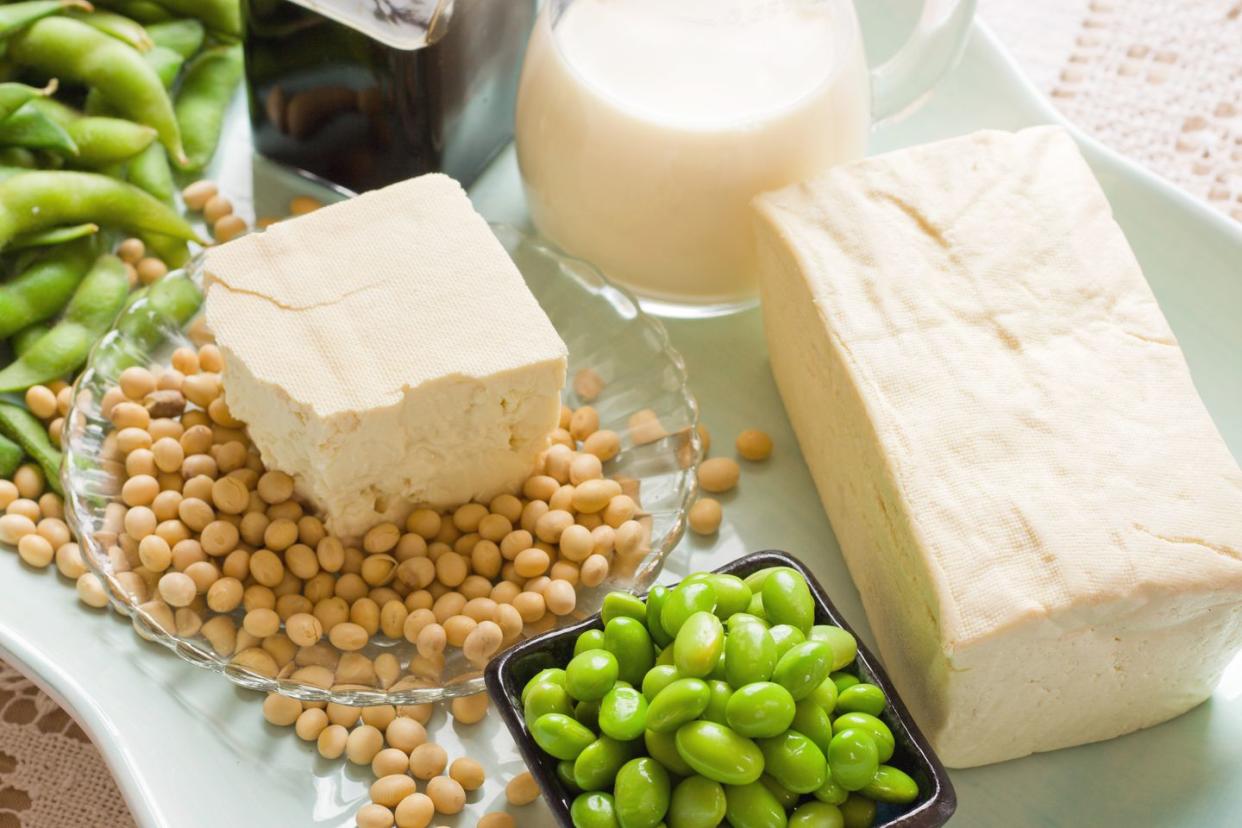Myth: It's Difficult To Eat Enough Protein On A Vegan Diet

"Hearst Magazines and Yahoo may earn commission or revenue on some items through these links."
Whether you choose to participate in meatless Monday or eat a plant-based diet every day, you've likely grappled with the dreaded protein dilemma. One commonly cited critique of vegan diets is that it can be more difficult to fulfill daily protein requirements. While it's true that meat is the most efficient way to hit that target, experts argue that the vegan protein void is largely a myth.
Studies indicate that the majority of American adults eat twice as much protein as they need, and most vegan eaters can easily fulfill their dietary needs without relying on animal products. But, because they don't consume meat, those with a plant-based diet should approach their protein consumption more thoughtfully.
But what is the best way to consume plant protein? Are certain sources better than others? We consulted Dr. Amy Lee, Head of Nutrition for Nucific, to unpack all of the factors that people should consider when following a plant-based diet.
What Kind Of Proteins Do We Need?

Protein is a macronutrient that's comprised of different amino acids. Our bodies need 20 specific amino acids to function, but we only produce 11 of them. The remaining nine come from our diet. "Proteins found in plants are made of the same amino acids that makes up whole proteins in animal products," Lee says.
How plant and animal proteins differ is in their amino acid profile. Proteins sourced from animal products (like meat, poultry, eggs, and dairy) have all nine of the essential amino acids your body needs and are considered "complete." Some, but not all, plant-based proteins are considered to be complete. Most are lacking sufficient amounts of at least one amino acid, which makes them "incomplete."
An incomplete protein isn't necessarily a bad thing—it just can't be the only source of protein in your diet. "Without adequate levels of these essential amino acids, one can develop deficiencies which results in clinical symptoms," Lee says.
Consuming all nine essential amino acids on a vegan diet usually requires eating different types of plant protein that collectively cover all of your bases. Beans and rice individually are incomplete, but eating them together fulfills your nutritional needs.
It is worth noting, however, that one does not need to eat complementary protein sources at the same time to reap the benefits. Experts suggest approaching your intake more holistically and consuming a variety of plant-based protein sources throughout the day. In fact, researchers behind a 2019 study concluded, "If a diet has at least a modest amount of variability...there are no issues regarding sufficient intakes of any individual indispensable amino acids from vegetarian diets."
Which Plant-Based Proteins Are Complete?

If you're at all concerned with the variety of your vegan diet or simply want to fulfill your macronutrient requirements in the most efficient way possible, there are different sources of complete plant-based proteins.
Most legumes are incomplete proteins with the exception of soy. Soybeans and all soy-based products, like tofu, tempeh, and textured vegetable protein, contain all nine essential amino acids. Grains are another category of primarily incomplete proteins, except for quinoa, amaranth, and buckwheat. Hemp seed is another source of every essential amino acid.
Plant protein in general is slightly more difficult for your body to absorb and digest, whether it's complete or not. But the difference in efficiency shouldn't be a cause for concern, because most of us already consume more than enough protein.
For those who are especially cautious about eating complete proteins, Dr. Lee suggests using online resources to identify amino acid gaps in the foods they eat. But unless you exclusively eat a single source of protein, you shouldn't be worried. The majority of Americans, both vegans and omnivores, are likely already fulfilling their daily protein requirements.
You Might Also Like
